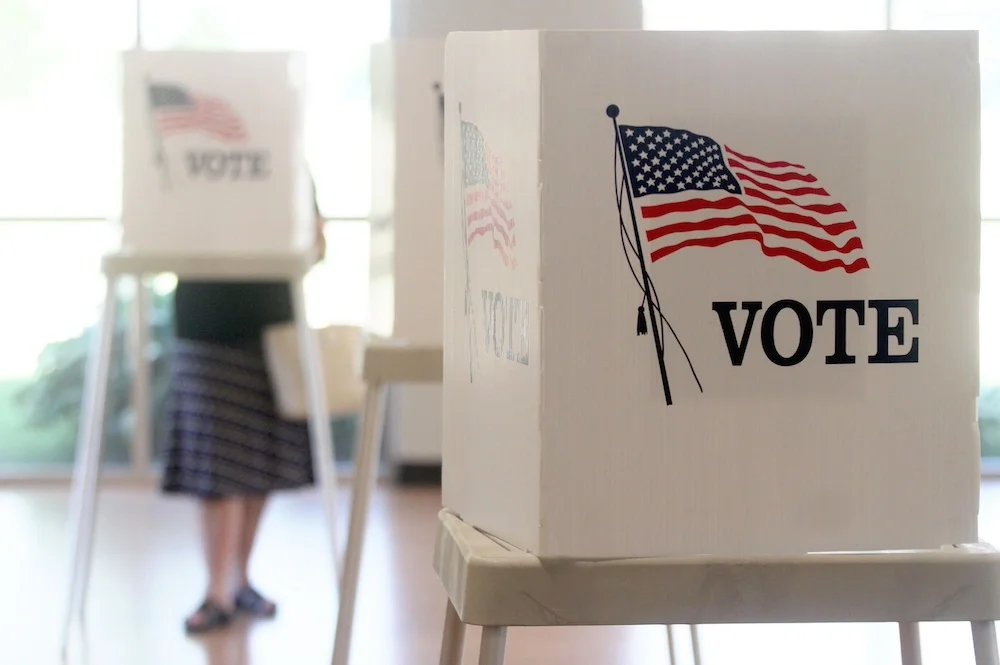

Brian Gaines is a professor of political science and the Honorable W. Russell Arrington Professor in State Politics at the U of I System’s Institute of Government and Public Affairs. Gaines, who studies elections and public opinion, spoke with News Bureau business and law editor Phil Ciciora about the state of the 2024 presidential election.
Now that Nikki Haley has suspended her presidential campaign, the country is bracing for – or, in many cases, resigned to – a Trump vs. Biden rematch. How predictable is the outcome at this point?
Eight months is a very long campaign duration by comparative standards. It will feel like an eternity to those who hate polarization and partisan mudslinging. I see extra reasons to be humble about forecasts right now. I don’t feel very confident projecting how former President Trump’s tangle of legal battles will play out, and to what effect. And as energetic as President Joe Biden seemed during his State of the Union address, his physical and mental state come October will matter. How effectively can he and his minders fend off public worries about age, and, for that matter, Father Time? I don’t know.
What’s the likelihood that voter turnout will be lower than it was for the 2020 presidential election? Will either candidate have much of a galvanizing force this time around in driving voters to the polls? Or could voter apathy toward the two candidates be masked by the spike in voting by mail?
To date, certainly including the recent State of the Union address, both sides are emphasizing bases, rather than reaching out to the political center. That’s a formula for lower turnout, all else equal. Countering that effect, many states have made voting substantially easier in recent years, and I think it will look and feel like a close contest by fall. Those are two forces driving up turnout.
My guess as of today is that turnout will not be a big component of the after-the-fact explanations of what happened. Personally, I will be watching for abnormally high abstention at the top of the ballot, from regular voters who simply cannot persuade themselves to back either Biden or Trump.
Between now and Election Day, voters will be flooded with horse-race polls. What’s the best way for the public to interpret those numbers?
After the collective miscall of 2016, pollsters spent a good deal of effort trying to figure out what went wrong. The adjustment they made, however, is still a long way from perfect. My rules of thumb are to regard reported margins of error as almost always being too small, and to be on guard for systematic biases. Don’t think that 52-48 is a strong indicator of a real lead, and don’t view agreement across a large set of polls, from different firms, as highly confidence-boosting. They might all be making the same mistake, most easily spotted after the fact.
For the presidential contest, it’s also well to recall that national polls are of limited value. At most, 12 states will genuinely be in play.
How worried should voters be about potential election interference from foreign countries and the rise of generative artificial intelligence in spreading misinformation?
AI is moving fast, and it’s hard to know how effectively it will be used in the campaign. Again, if I were forced to guess, I would propose that it will be a secondary or tertiary factor in the presidential contest, given how well known the strengths and weaknesses of the contenders are.
How much of an effect will foreign issues such as the war in Ukraine and conflict in the Middle East play in determining the outcome of the presidential election versus domestic issues such as inflation and immigration?
I think most election watchers believe the 2024 presidential election will mostly come down to domestic matters, with Biden talking ceaselessly about abortion and fair taxes, while Trump pounds away on the porous border and huge migrant surge, plus inflation.
However, I can imagine foreign affairs casting a pretty long shadow, particularly if dramatic late-summer or early-fall events remind voters of how dangerous the world can be. Foreign crises sometimes produce a rally for incumbent presidents, but I think Biden’s team is the more worried about new, deadly chaos in Israel or Ukraine being on the top of the minds of voters come November.


